How to Get Over Car Accident Trauma in Ontario, Canada
Discover How To Get Over Car Accident Trauma in Ontario, Canada
Are you trying to overcome the psychological trauma of a car accident in Ontario? Look no further. Car accidents can be an incredibly painful experience, and the aftermath of a major crash can leave you with deep psychological scars. Whether the accident resulted from your actions or someone else’s, the physical and mental toll accompanying the aftermath remains the same.
You may feel scared, confused, angry—the list goes on. But rest assured, effective strategies are available to help you recover from your trauma healthily.
In this webpage, we will discuss some powerful tips about how to get over and deal with car accident trauma, how to cope with traumatic memories after a car accident in Ontario and how counselling can help bridge the road to recovery.
So keep reading if you want information and guidance on healing from a difficult experience.
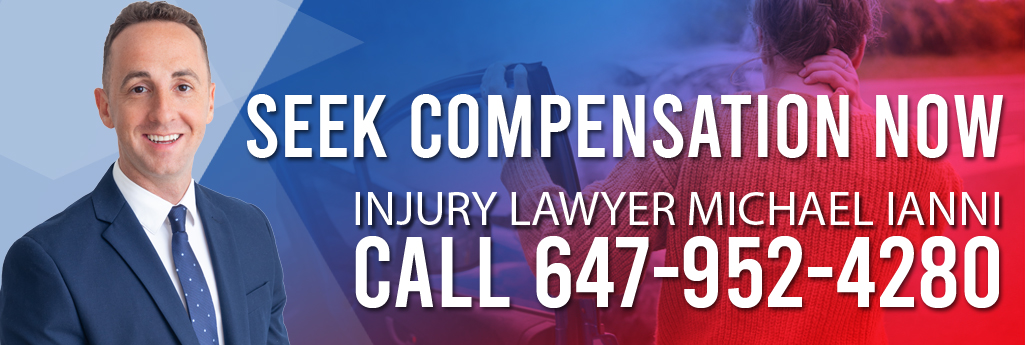
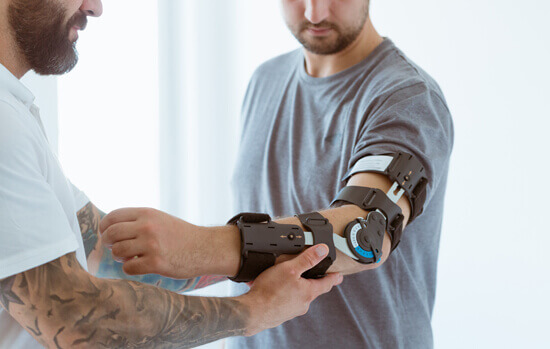
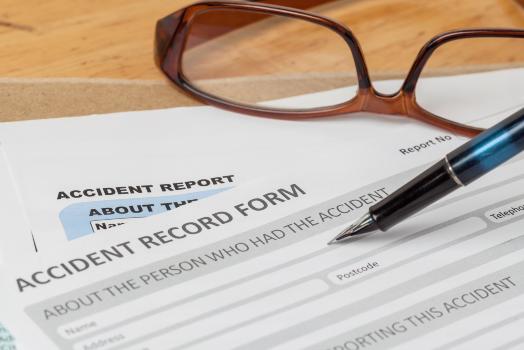
How to Get Over Car Accident Trauma in Ontario, Canada
How to Get over Car Accident Trauma in Ontario, Canada
Car accidents in Ontario can be particularly stressful because the roads are often busy, and weather conditions hinder visibility. As a result, drivers may not have enough time to respond adequately to potential hazards on the road, leading to serious injuries or even death.
As per data from the Insurance Bureau of Canada, an average of 2,000 car accidents are reported daily in Ontario. In 2021, there were 74,058 car accidents reported in Ontario alone, resulting in 359 fatalities and 8,185 serious injuries.
Luckily, several steps can be taken to help those who have experienced a car accident in Ontario cope with their trauma. Some strategies include seeking professional help, engaging in outdoor activities, finding support from friends and family, and practicing self-care techniques.
It is important to take steps to endure the trauma of a car accident to move beyond it.
Here are some strategies for getting over car accident trauma in Ontario:
Seek Professional Medical Help
If you are struggling to survive the trauma of a car accident, it is important to seek professional help. A trained mental health professional can provide psychological support and guidance to help you process feelings around the accident. They also can advise on how to deal with any physical or other issues related to the trauma of the accident.
Report the Accident
Depending on the type of accident, you may need to inform the police, your insurance company, or a relevant regulatory authority. In Ontario, for example, most car accidents should be reported to the police if they cause more than $2000 in damage and to your insurance company no matter the damage.
Documentation
Keep thorough documentation of everything related to the accident, including shots of the accident scene, medical reports, police reports, insurance communications, etc. These documents may be important for insurance claims or potential legal action.
Consult a Mental Health Professional
After a painful event like a car accident, it’s not uncommon for individuals to experience mental and emotional distress. Seeing a psychologist, psychiatrist, or therapist can provide you with coping strategies and treatments such as cognitive-behavioural therapy, EMDR (Eye Movement Desensitization and Reprocessing), or medication if needed.
Take Care of Your Physical Health
Engaging in consistent physical activity, managing a good diet, and completing bed rest can help you to recover physical health effectively.
Find a Support System
This could be friends, family, or a support society of people who have been through similar experiences. Talking about your emotions and experiences with others who understand can be incredibly beneficial.
Mindfulness and Relaxation Techniques
Practices like meditation, deep breathing, yoga, or progressive muscle relaxation can help reduce anxiety and increase feelings of calmness and well-being.
Take Your Time
Healing from a traumatic event takes time. Take your time, and don’t let anyone pressure you into moving faster than you’re comfortable. It’s perfectly fine to proceed at your own pace.
Engage in Outdoor Activities
Spending time outdoors can effectively cope with the stress and anxiety accompanying a car accident. Being in nature allows you to gain perspective, appreciate the beauty and find solace from being surrounded by elements larger than yourself. This can provide clarity and peace of mind.
Find Support from Friends and Family
When dealing with trauma, finding support from those around you is important. This can include friends, family members or even a spiritual leader or mentor. Individuals like these can offer both emotional and practical assistance. Their help can aid you in navigating the difficulties of dealing with the psychological effects of a car accident.
Practice Self-Care Techniques
Taking time for self-care can be an important part of coping with trauma. This includes getting enough sleep, eating healthy and engaging in relaxation techniques. Practicing these activities can help you to build resilience. It also enables you to cope with the emotional turmoil that comes with a car accident.
Relearning Confidence in Driving
When you’re ready, consider taking a refresher driving lesson with a professional instructor. Gradually build up your confidence and dispel any fears you may have.
Legal Assistance
If the accident wasn’t your fault, consider speaking to a lawyer specializing in Ontario personal injury or car accidents. These lawyers can help you know your rights and possibly get compensation for your trauma. In Ontario, you can contact our recommended lawyer for hassle-free assistance.
They can provide advice on legal matters and ensure that you are perfectly compensated for any injuries or damages resulting from the accident.
By taking these steps, you can begin to heal and move beyond the traumatic experience of a car accident.
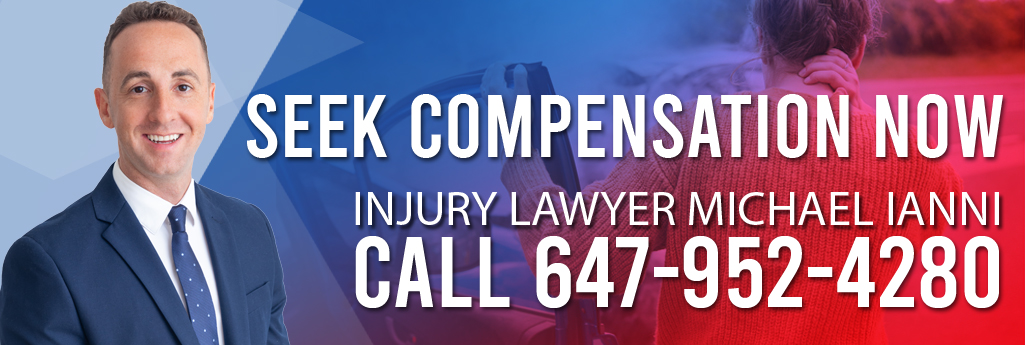

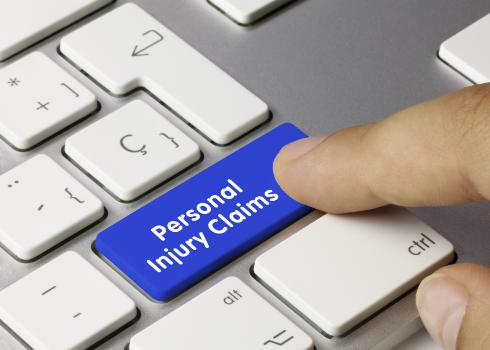
How to Deal with Car Accident Trauma in Ontario, Canada
How to Deal with Car Accident Trauma in Ontario, Canada
Car accidents are a regrettable reality of life. They can result in physical injuries and emotional trauma, significantly impacting the quality of life of those involved. In Ontario, where the roads are busy with commuters, tourists, and truckers, understanding the complexities of car accidents is essential.
First thing, you need to know the common causes of car accidents which can badly impact someone’s life involved in an accident in Ontario:
Common Causes of Car Accidents Trauma in Ontario
Ontario’s diverse weather conditions and bustling traffic contribute to numerous car accidents every year. We will also discuss how to avoid car accident trauma while driving.
Some common causes include:
- Distracted Driving: This is the main cause of car accidents in Ontario. Texting, eating, or even changing the radio station can divert a driver’s attention from the road.
- Impaired Driving: Despite strict laws against drunk driving, alcohol and drugs contribute significantly to car accidents.
- Speeding: Driving over the speed limit is prevalent, especially on highways.
- Reckless Driving: Reckless driving behaviours, such as speeding, aggressive driving, tailgating, or sudden lane changes, significantly increase the risk of accidents. Being a victim of someone else’s reckless driving can lead to trauma due to the sudden and unexpected nature of the collision.
- Poor Road Conditions: Ontario’s weather conditions, including snow, ice, heavy rain, or fog, can create hazardous road conditions. Accidents caused by slippery roads, reduced visibility, or hydroplaning can result in traumatic experiences for those involved.
- Failure to Follow Traffic Laws: Disregarding traffic laws, such as speeding, improper lane changes, or inability to use turn signals, can lead to accidents. Violating traffic laws can result in traumatic experiences for those involved.
Deal with Consequences of Car Accidents
Car accidents can lead to significant consequences, including physical and psychological trauma. Physical injuries can range from minor cuts, whiplash or bruises to severe injuries like broken bones, spinal cord injuries, and traumatic brain injuries.
On the psychological front, victims may experience PTSD, depression, anxiety, and other mental health issues. These problems can affect their work, relationships, and overall quality of life.
Here is the list of things you can do to deal with car accident trauma in Ontario:
- Follow Treatment Plans: Adhere to the recommended treatment plans and attend follow-up appointments with healthcare professionals. This ensures proper healing and rehabilitation, minimizing long-term physical consequences.
- Physical Therapy and Rehabilitation: Depending on the seriousness of your injuries, participating in physical therapy and rehabilitation programs can aid in the recovery process, restore function, and improve mobility.
- Acknowledge and Express Emotions: It’s normal to experience a wide range of emotions following a car accident, including anxiety, fear, anger, or even symptoms of post-traumatic stress disorder (PTSD). Allow yourself to acknowledge and express these emotions healthily, whether through talking to a trusted friend or family member or seeking professional support.
- Mental Health Support: Consider contacting a mental health professional, such as a therapist or psychologist, who specializes in trauma. They can help you navigate the emotional impact of the accident and develop coping mechanisms to manage any psychological distress.
- Insurance Claims: Familiarize yourself with Ontario’s insurance system and file an insurance claim immediately. Contact your insurance provider and provide all necessary documentation to ensure you receive the appropriate compensation for medical expenses, vehicle repairs, and other applicable benefits.
- Transportation: If your vehicle is inoperable after the accident, explore alternative transportation options such as rental cars, public transit, or ridesharing services to ensure you can carry on with your daily activities.
- Work and Finances: If the accident impacts your ability to work or results in financial strain, communicate with your employer about any necessary time off and explore potential financial assistance, such as disability benefits or compensation from the accident benefits system.
Dealing with Legal Implications
In some cases, victims of car accidents may be entitled to compensation for their injuries and other losses. This can include compensation for medical expenses, lost income, and pain and suffering. Victims should consult with our recommended and experienced personal injury lawyer to determine whether they have a valid legal claim. They can protect your rights, advocate, and help you pursue legal action.
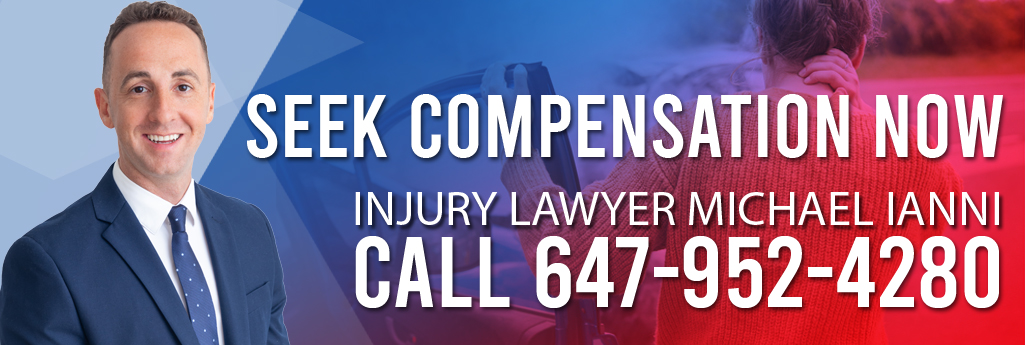

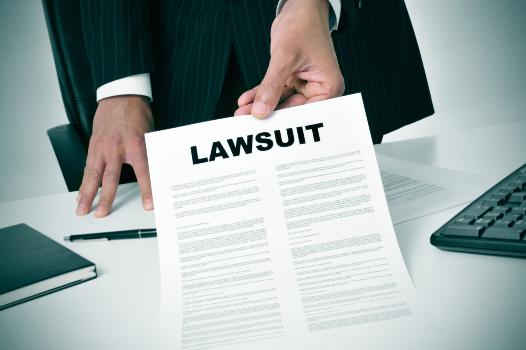
How to Deal with Trauma After a Car Accident in Ontario, Canada
How to Avoid Trauma While Driving a Car in Ontario, Canada
In the bustling roads of Ontario, safe driving practices are crucial for preventing accidents and minimizing the risk of trauma. By adopting a proactive approach and implementing essential strategies, individuals can greatly reduce the likelihood of experiencing trauma while driving.
Defensive Driving Techniques
Defensive driving in Ontario and everywhere else involves anticipating potential hazards and being prepared to deal with them. Key techniques include:
- Maintaining a safe following distance.
- Not tailgating.77. Psychological Trauma – How
- Observing traffic laws.
- Scanning the road for potential hazards.
- Avoiding distractions like mobile phones.
It’s about being aware, alert, and ready to react to the unexpected.
Adhering to Road Safety Regulations
Following Ontario’s road safety regulations and traffic laws is critical to ensuring your safety and that of others. This includes wearing seat belts, using child car seats correctly, and obeying speed limits and traffic signs. These measures have been proven to reduce the severity of injuries in the event of an accident.
Proper Vehicle Maintenance
Keeping your vehicle in good working order is essential to safety. Regular inspections can catch issues before they become dangerous. Always check your tire pressure, keep your windshields and mirrors clean, and address any mechanical issues promptly to ensure optimal performance and safety.
Avoiding Impaired Driving
Driving under the influence of alcohol or drugs, or even when excessively tired, greatly increases the risk of an accident. In Ontario, if you need to travel, consider safer options such as taxis, rideshare services, or appointing a designated driver. Making responsible choices can save lives.
Managing Stress and Emotions While Driving
Stress, anger, and other strong emotions can compromise your ability to focus and react appropriately on the road. Techniques for managing these emotions can include deep breathing exercises, listening to calming music, or pulling over if you feel overwhelmed.
Practicing Situational Awareness
Situational awareness involves scanning your surroundings for potential hazards, predicting possible environmental changes, and being prepared to react. This includes constantly checking mirrors, monitoring pedestrians and other drivers, and avoiding distractions.
Taking Driver Education Courses
Ontario’s driver education courses or defensive driving programs can greatly enhance your driving skills. They provide valuable insights into road safety, laws, and practical accident avoidance strategies.
Encouraging Open Communication
Passengers can play a key role in car safety. Make sure everyone understands the importance of good behaviour, like not distracting the driver and always wearing a seat belt. Also, please encourage them to voice any safety concerns.
Promoting Mental Well-Being
Maintaining good mental health is important for safe driving. Managing stress effectively, seeking therapy if needed, practicing mindfulness, exercising, and engaging in activities you enjoy can all contribute to your overall mental well-being.
Remember, these guidelines for safe driving in Ontario apply to everyone’s road safety. The ultimate goal is to prevent accidents and ensure a safe driving environment. In case of any financial hazard after a car accident in Ontario, you can consult with our personal injury lawyer, who can help you to overcome your financial condition with proper compensation.
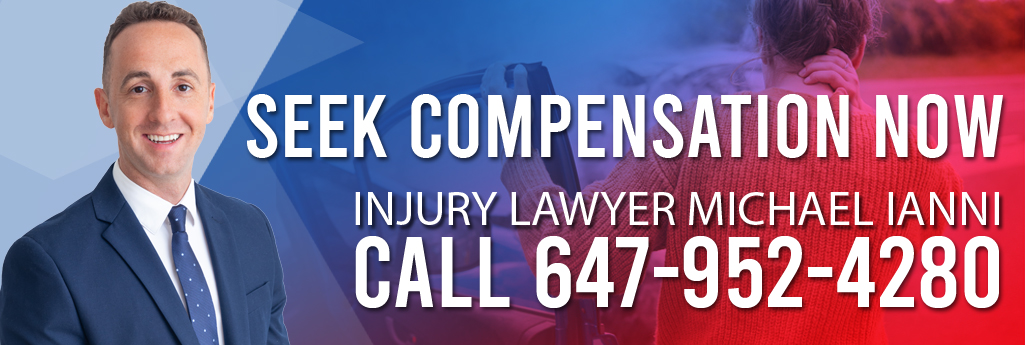
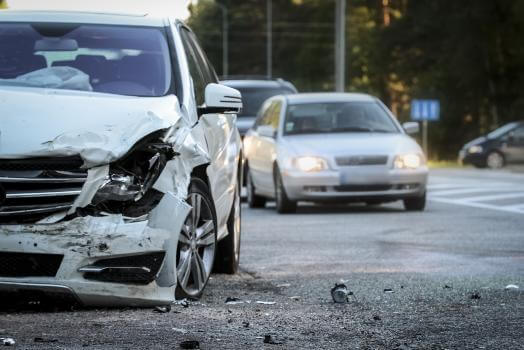

How to Deal with Accident Trauma in Ontario, Canada
How to Recognize and Address Trauma After an Accident in Ontario, Canada
Recognizing and addressing psychological trauma after an accident involves a combination of self-awareness, support from others, and professional help when needed.
Here’s a guide to help you through the process:
Recognizing Trauma
- Physical Symptoms: These can include aches and pains, sudden sweating or heart palpitations, insomnia or nightmares, changes in sleep patterns, fatigue, changes in appetite or digestion, and being easily startled.
- Emotional and Mental Symptoms: You might experience intrusive thoughts about the accident, anxiety, depression, flashbacks, nightmares, or find it difficult to concentrate. You could also feel persistent fear, horror, mood swings, anger, feeling guilt or shame, emotional numbness or sadness.
- Behavioural Changes: You may avoid people, places or activities that remind you of the accident. You might withdraw from social activities or lose interest in activities you used to enjoy. You can also see the significant changes in routines, concentration, addiction to alcohol or drugs or self-harm activity like suicidal thoughts.
- PTSD: Symptoms that persist for over a month and significantly impact your relationships or work may indicate post-traumatic stress disorder (PTSD). This serious condition requires professional help.
Addressing Trauma
- Acknowledge and Validate Your Emotions: It is usual to undergo a variety of emotions after a car accident, including shock, fear, anger, or sadness. Allow yourself to experience and handle these emotions without criticism.
- Seek Emotional Support: Reach out to trusted friends or family members who can provide a supportive and understanding presence. Sharing your thoughts and feelings with them can offer comfort and help you process the trauma.
- Engage in Self-Reflection: Reflect on your experience and its impact on your life. Consider journaling or writing about your thoughts, feelings, and any recurring thoughts or nightmares related to the accident. This self-reflection can help you gain insights and promote healing.
- Explore Relaxation Techniques: Try calming methods like deep breathing, progressive muscle relaxation, or guided imagery. These techniques can help calm your nervous system, reduce anxiety, and promote relaxation.
- Gradual Exposure: If you’re experiencing fear or anxiety related to driving, consider gradually exposing yourself to driving situations in a controlled and supportive manner. Start with short drives or practice sessions in low-stress environments and gradually increase the difficulty as you regain confidence.
- Engage in Positive Distractions: Participate in activities that bring you joy and distract you from negative thoughts about the accident. Engaging in hobbies, pursuing creative outlets, or participating in activities you enjoy can help shift your focus and promote well-being.
- Seek Professional Help if Needed: If you find it challenging to cope with the trauma on your own or if it significantly impacts your daily life, consider seeking support from a mental health professional. They can provide specialized guidance and therapy techniques to address the specific effects of car accident trauma.
Patience and Time: Recovering from trauma requires time, so be patient with yourself. Avoid putting pressure on yourself to “get over it” quickly. Allow yourself to recover at your own tempo and recognize that it’s a gradual process.
In Ontario, there are numerous resources for trauma survivors, such as the Ontario Psychological Association, which can provide referrals for psychologists specializing in trauma.
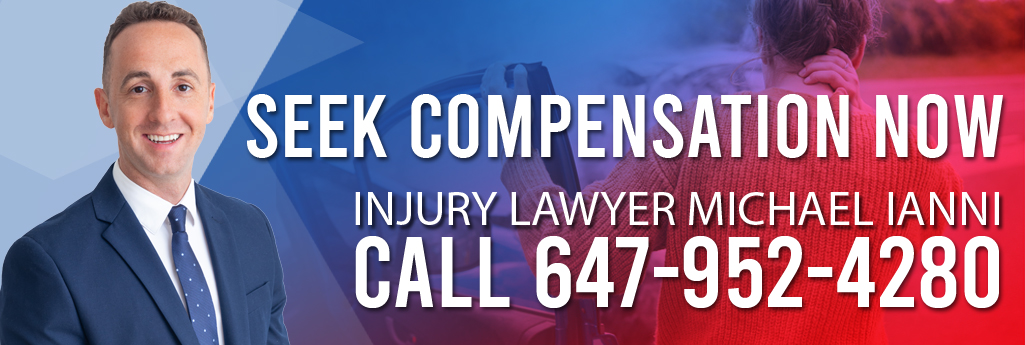
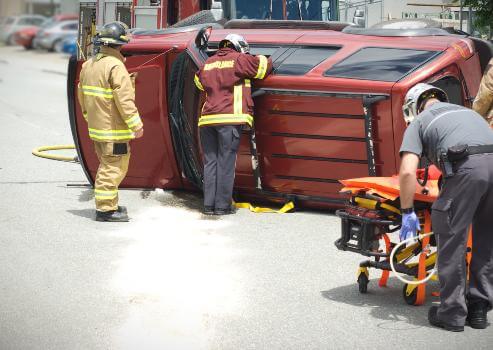

How to Deal with a Traumatic Car Accident in Ontario, Canada
How to Seek Professional Help for Psychological Trauma in Ontario, Canada
Dealing with psychological trauma is never easy, and seeking professional help can often feel overwhelming. However, taking that first step towards healing is crucial for your well-being. If you are living in Ontario, Canada and looking for professional help for psychological trauma, here are the important steps toward recovery.
In Ontario, there are numerous resources available to help. Here are some steps you can take:
- Consult Your Family Doctor: Your family doctor is a good first step as they can assess your situation, provide initial care, and refer you to a mental health professional if needed.
- Ontario Psychological Association (OPA): The OPA has a “Find a Psychologist” tool on its website to help you locate a psychologist in your area who specializes in trauma.
- Community Health Centers: These centers provide various services, including mental health care. Get in touch with the one nearest to you for more information.
- Private Practice Therapists: Many psychologists and therapists run private practices and specialize in various areas, including trauma. Be sure to check their qualifications and ensure they’re registered with a recognized professional body like the College of Psychologists of Ontario.
- Employee Assistance Programs (EAPs): Check if your workplace offers an EAP. These programs often provide short-term counselling and can refer you to longer-term services if necessary.
- Psychiatric Hospitals: In severe cases or if you’re suicidal, visit the nearest emergency room. Several psychiatric hospitals in Ontario provide treatment for serious mental health issues.
- Online Therapy Platforms: Online platforms can connect you with mental health professionals through text, voice, or video chat. This could be a good opportunity if you need help accessing in-person services.
Remember, seeking help is proof of strength, and everyone’s journey to recovery is unique. Keep trying until you find the support that’s right for you; if the first approach you try doesn’t work for you – keep trying until you find the support that’s right for you. The important thing is to take that very first step and reach out to someone.
*The laws pertaining to automotive injuries are complex and are contsantly evolving. The information on this website was not written by legal professionals and should not be considered legal advise. Please contact a professional personal injury lawyer serving Ontario for the most up to date and accurate information.






